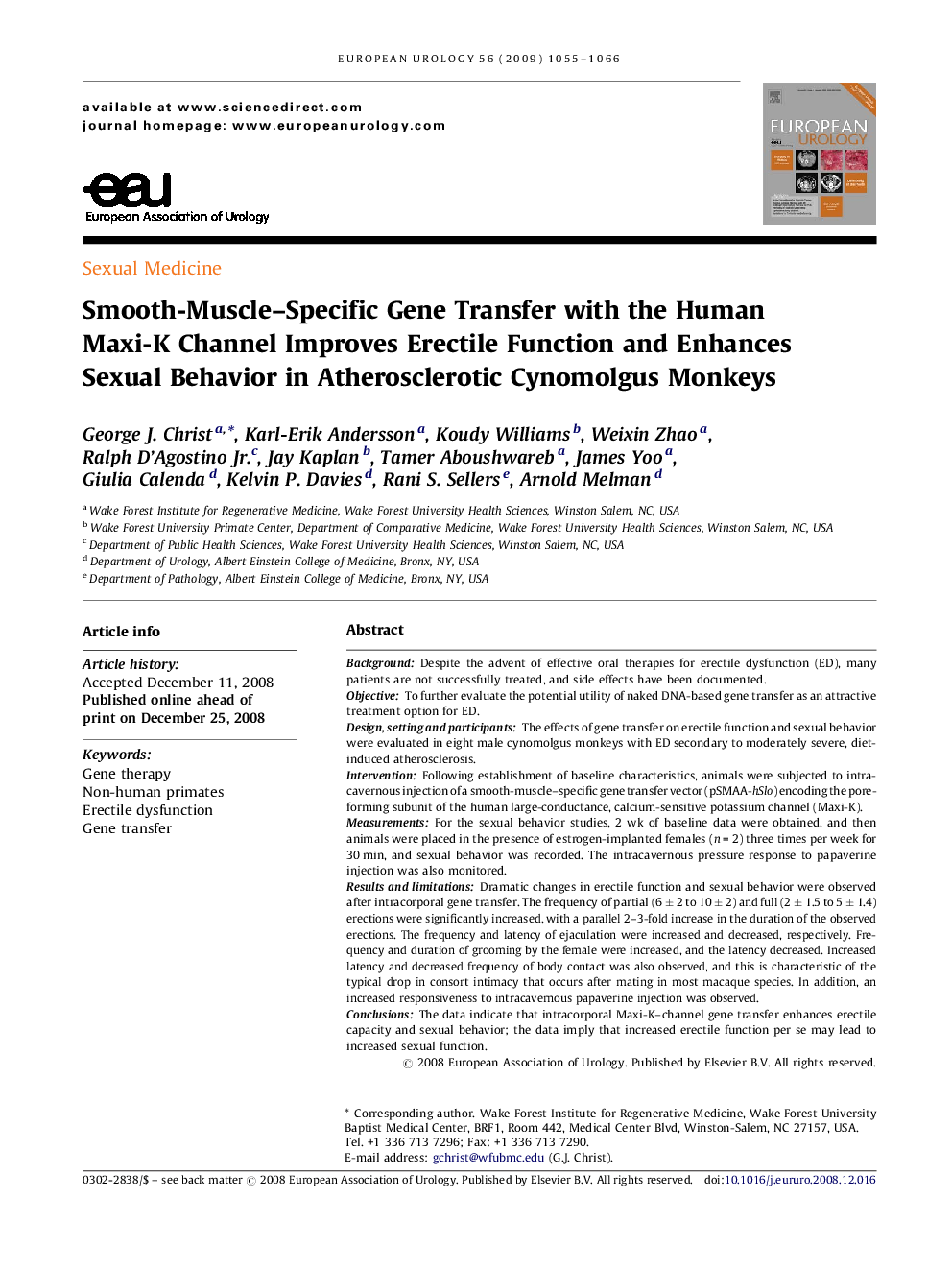| کد مقاله | کد نشریه | سال انتشار | مقاله انگلیسی | نسخه تمام متن |
|---|---|---|---|---|
| 3924652 | 1253109 | 2009 | 12 صفحه PDF | دانلود رایگان |

BackgroundDespite the advent of effective oral therapies for erectile dysfunction (ED), many patients are not successfully treated, and side effects have been documented.ObjectiveTo further evaluate the potential utility of naked DNA-based gene transfer as an attractive treatment option for ED.Design, setting and participantsThe effects of gene transfer on erectile function and sexual behavior were evaluated in eight male cynomolgus monkeys with ED secondary to moderately severe, diet-induced atherosclerosis.InterventionFollowing establishment of baseline characteristics, animals were subjected to intracavernous injection of a smooth-muscle–specific gene transfer vector (pSMAA-hSlo) encoding the pore-forming subunit of the human large-conductance, calcium-sensitive potassium channel (Maxi-K).MeasurementsFor the sexual behavior studies, 2 wk of baseline data were obtained, and then animals were placed in the presence of estrogen-implanted females (n = 2) three times per week for 30 min, and sexual behavior was recorded. The intracavernous pressure response to papaverine injection was also monitored.Results and limitationsDramatic changes in erectile function and sexual behavior were observed after intracorporal gene transfer. The frequency of partial (6 ± 2 to 10 ± 2) and full (2 ± 1.5 to 5 ± 1.4) erections were significantly increased, with a parallel 2–3-fold increase in the duration of the observed erections. The frequency and latency of ejaculation were increased and decreased, respectively. Frequency and duration of grooming by the female were increased, and the latency decreased. Increased latency and decreased frequency of body contact was also observed, and this is characteristic of the typical drop in consort intimacy that occurs after mating in most macaque species. In addition, an increased responsiveness to intracavernous papaverine injection was observed.ConclusionsThe data indicate that intracorporal Maxi-K–channel gene transfer enhances erectile capacity and sexual behavior; the data imply that increased erectile function per se may lead to increased sexual function.
Journal: European Urology - Volume 56, Issue 6, December 2009, Pages 1055–1066